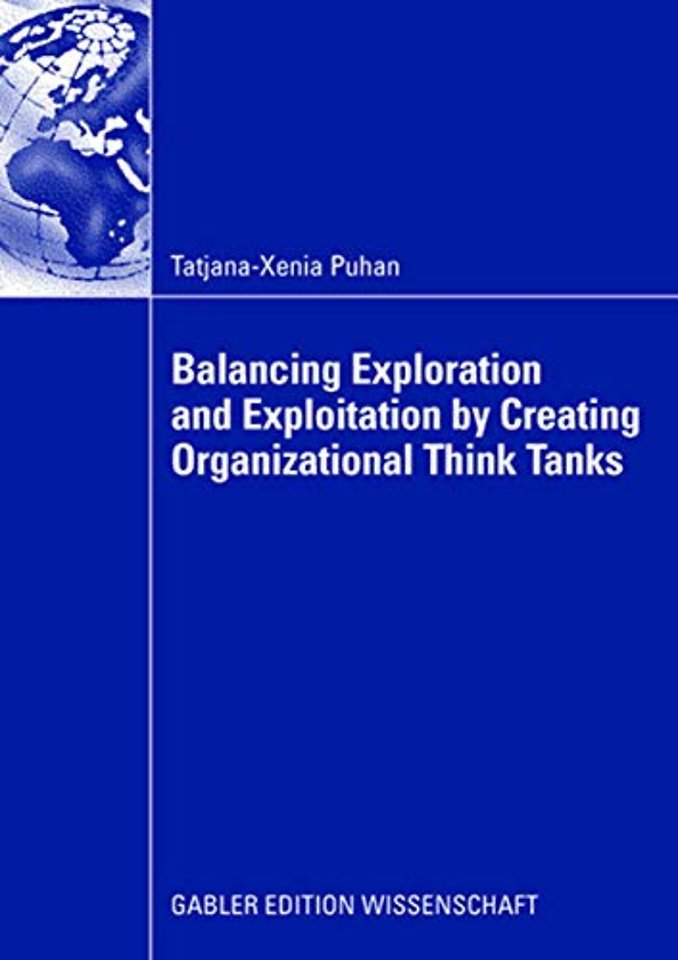Balancing Exploration and Exploitation by Creating Organizational Think Tanks
Paperback Engels 2008 9783834909350Samenvatting
Key for successful knowledge management is a balance between exploration and exploitation. Exploration means the generation of new knowledge in non-targeted search processes, while exploitation denotes the use of existing knowledge in targeted exploitation processes. The relationship between the two processes is one of fundamental tension; this poses a challenge to organisations which seek to make their knowledge management effective. There is a danger that exploration is neglected in favour of exploitation. This results in an organisation which lacks innovation capability. In order to prevent this, an idea has been put forward for debate in recent knowledge management research called ambidexterity, which means the simultaneous and balanced pursuing of both exploration and exploitation activities. In the following work, Tatjana-Xenia Puhan further develops this idea masterfully, by concluding that ambidexterity need not necessarily be implemented in one single organisation but can also be realised in a network of associated organisations. This approach, which she terms interorganizational ambidexterity is based on co-specialisation: one organisation is devoted solely to exploration, while associated organisations focus on their core competences in exploitation. Ms. Puhan additionally draws on the concept of the think tank. Think tanks play an increasingly important role in society: as a source of ideas, in an advisory capacity and sometimes even as devil’s advocate for the purposes of injecting new momentum to current debate in society, business and science.
Specificaties
Lezersrecensies
Inhoudsopgave
Anderen die dit kochten, kochten ook
Rubrieken
- advisering
- algemeen management
- coaching en trainen
- communicatie en media
- economie
- financieel management
- inkoop en logistiek
- internet en social media
- it-management / ict
- juridisch
- leiderschap
- marketing
- mens en maatschappij
- non-profit
- ondernemen
- organisatiekunde
- personal finance
- personeelsmanagement
- persoonlijke effectiviteit
- projectmanagement
- psychologie
- reclame en verkoop
- strategisch management
- verandermanagement
- werk en loopbaan







